
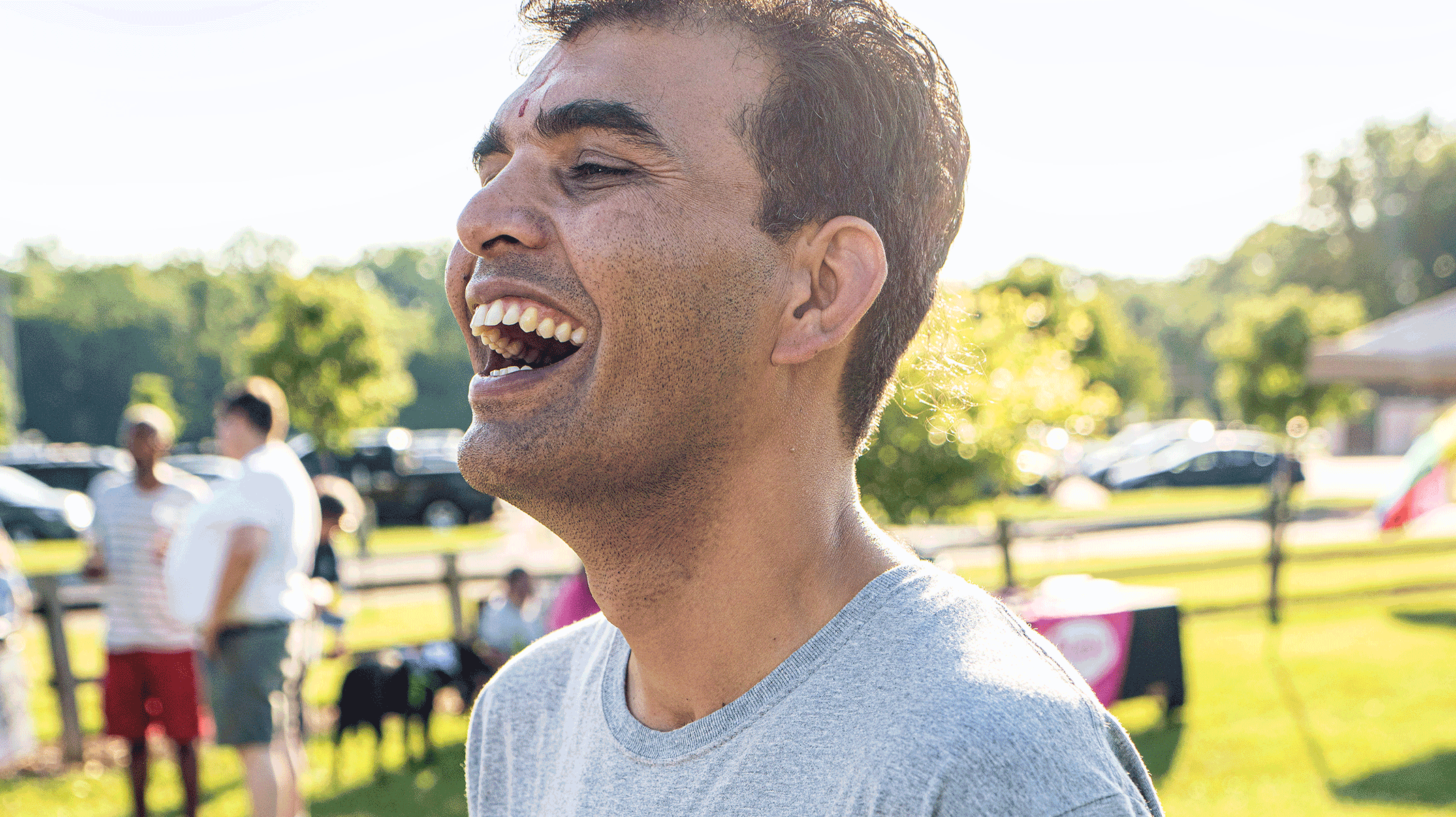
Who Has Everything
In the 1990s, Bhuwan Pyakurel was forced out of his native Bhutan because of his deep faith in democracy, his belief in Hindu Dharma, and his Nepali cultural heritage. He was nine years old, caught up with his family in the ethnic cleansing of more than 100,000 southern Bhutanese who were collectively expelled.
Bhuwan spent nearly all of the next 20 years in a refugee camp in Nepal, part of a generation that grew up stateless, not permitted to work, and not knowing when their status would change. What got him through the dark times — and there were many, he says — was community. Everyone looked out for one another. What they lacked was the rights and rewards of citizenship. “Without citizenship you have nothing,” he says. “You are less than an animal. You are less than human. Citizenship brings everything.”
“We came to the U.S. with $15. Today we have everything. We have achieved the American dream.”
When his family arrived in Denver and LIRS unlocked the door to an apartment in Colorado Springs, Bhuwan was overwhelmed. “That was everything — in terms of house, food, people there to help us. They were there to empower, support, and make us reliable citizens of this nation.” For the first time, he felt valued. “I was a human being.”
Hungry for work, Bhuwan volunteered at a 7-Eleven store on his first day. Two weeks later, he was hired. Ten years later, he owns a car, a house, and retirement savings accounts. His children attend great schools. “All these things were not even a dream for a person who grew up in a refugee camp,” he says.
His most prized possession is U.S. citizenship. The judge who swore him in told everyone to vote and run for office. Bhuwan took that as a personal charge, taking every election day off to get out the vote and winning a city council seat in his adopted hometown. He is the first Bhutanese American elected official in the United States.
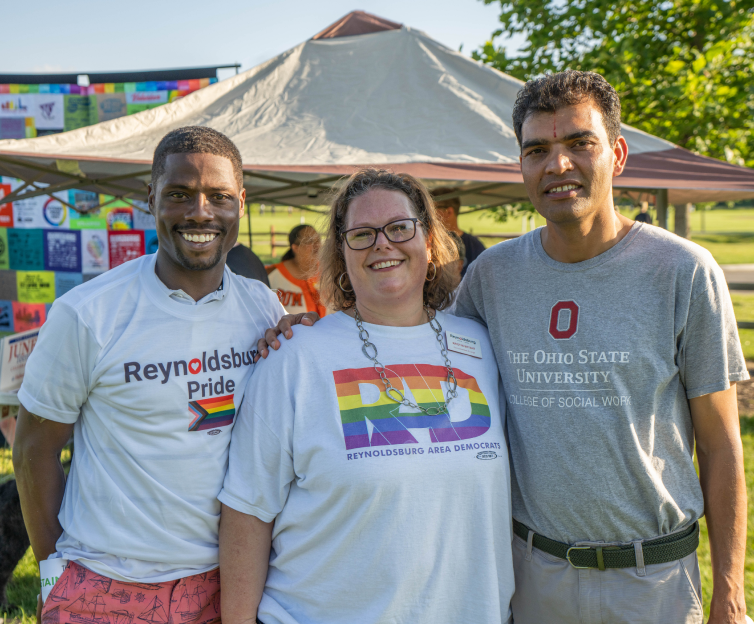
celebrating Pride
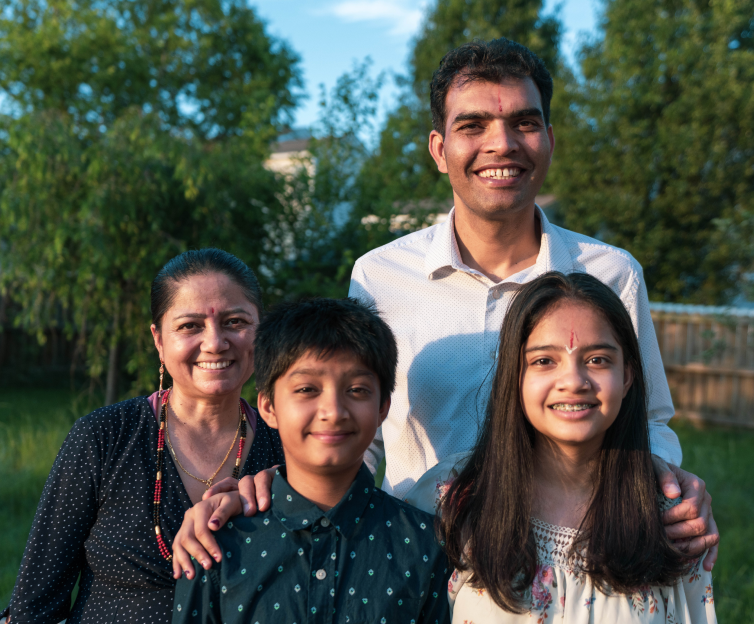
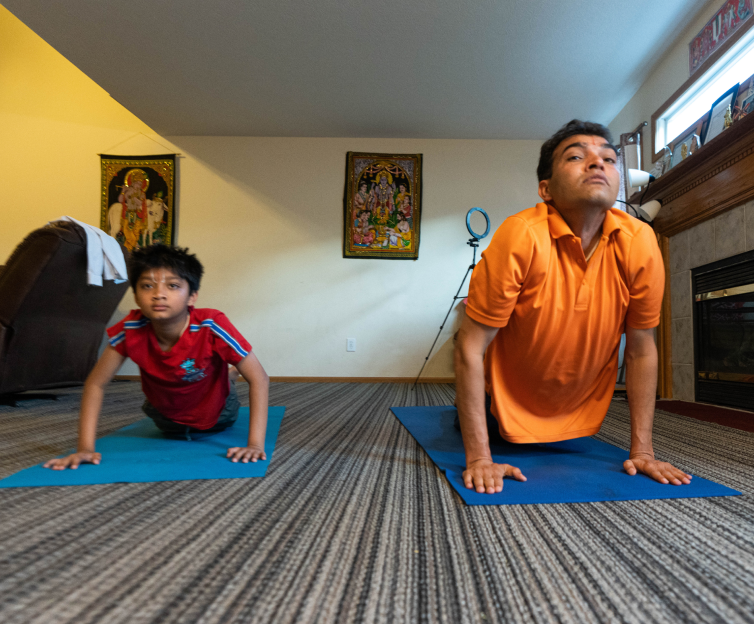
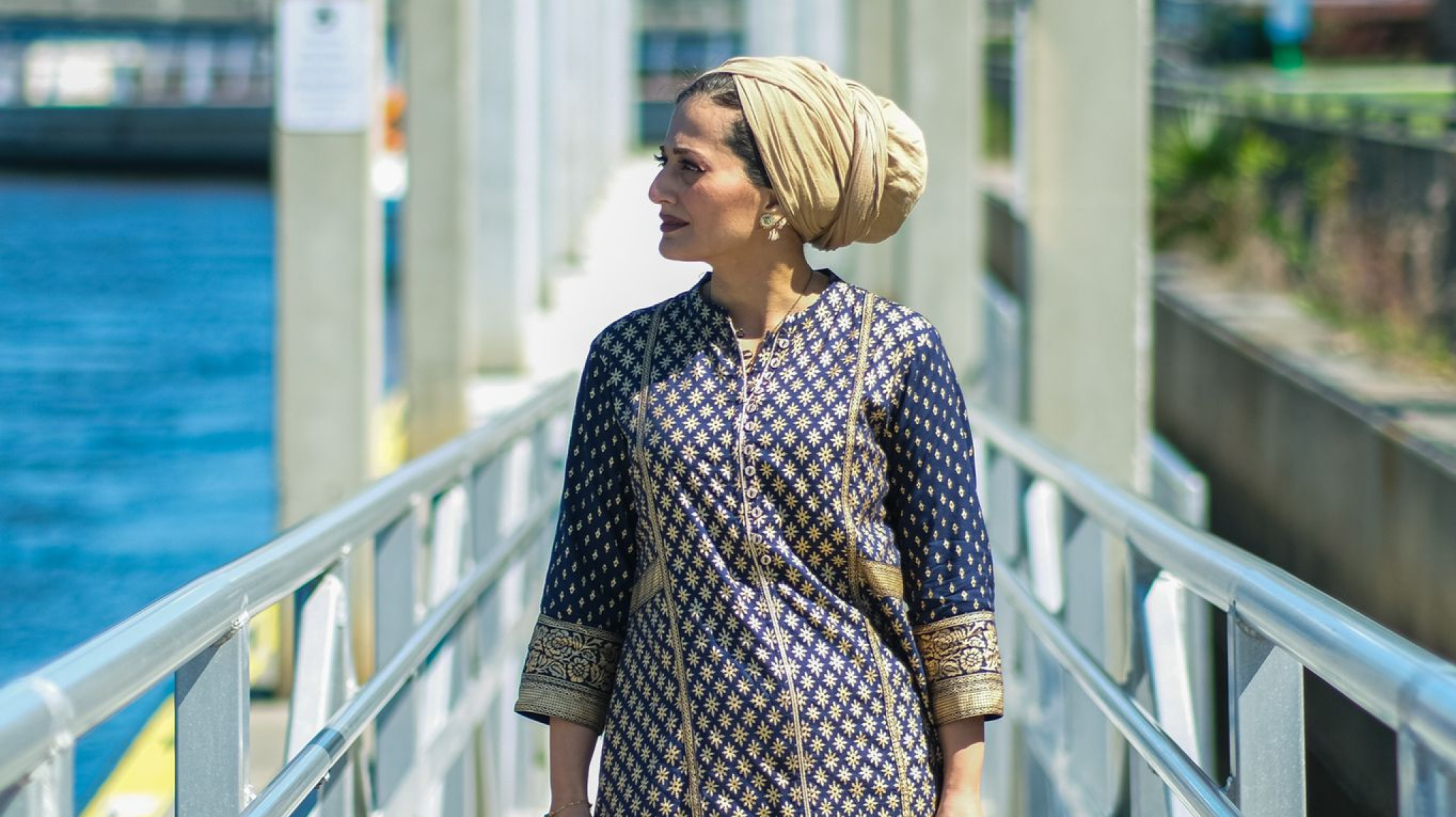
Basma Alawee and her husband Ali Al Jubouri’s tale of coming to America began the night U.S. troops banged on her family’s front door in Baghdad. Heavily armed, they pushed the men to the ground and handcuffed them. One soldier stepped on Basma’s brother’s head — a grave insult in Arab culture. The ordeal ended when, after repeated urging by Basma’s mother, a translator persuaded the soldiers to look at the family’s IDs. They had confused the Alawees’ names with the names of wanted criminals.
Realizing their mistake, the troops apologized and left. Ali, who had just earned a degree in hospitality, then made a life-altering decision. He would work for the U.S. Armed Forces, aiming to spare others the harm of an unbridged cultural divide. “That’s why my husband joined the troops,” Basma says, “but also why our community betrayed us.”
“It is true for many refugees, not just me, that we want to prove ourselves right away.”
No longer safe in Iraq, Ali applied for a Special Immigrant Visa (SIV), which offers translators Lawful Permanent Resident status upon entry to the United States. Two years later, the family resettled in Orlando. From the start, strangers would see Basma in hijab and tell her to go home. “That was the shock in the process of seeking refuge,” she says. “That’s why I had to advocate on behalf of SIVs — people like us who went through that journey — and refugees in general. At the end of the day, we were all forced to leave home.”
As a girl in Baghdad, Basma felt known. She carried her family name, as she still does, and it brought the respect that her parents had earned as educators. As the We Are All America National Campaign Manager at National Partnership for New Americans, Basma feels known, again, making a name for herself as an activist, connector, and community builder who is easing the way for the next wave of newcomers.
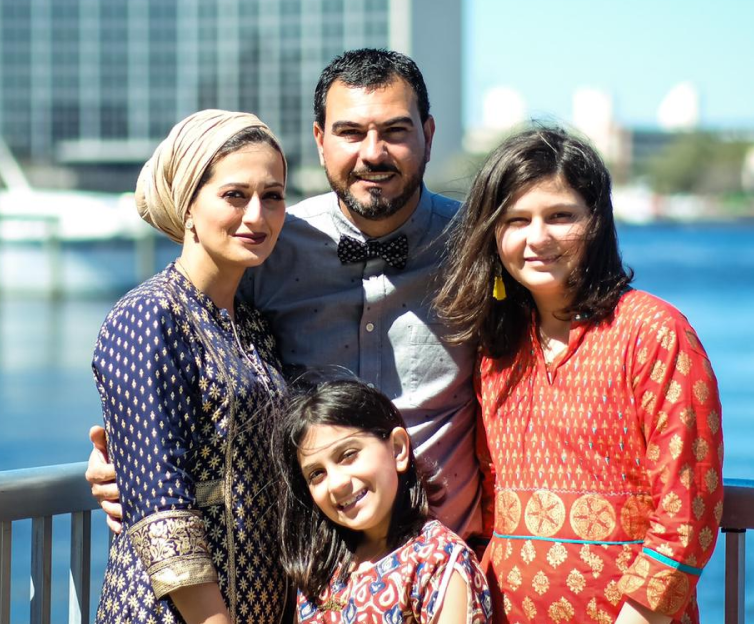
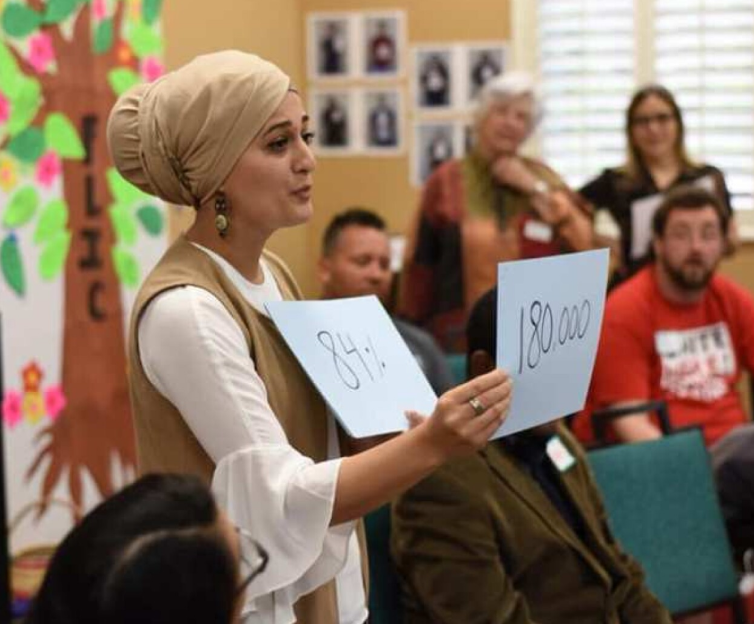
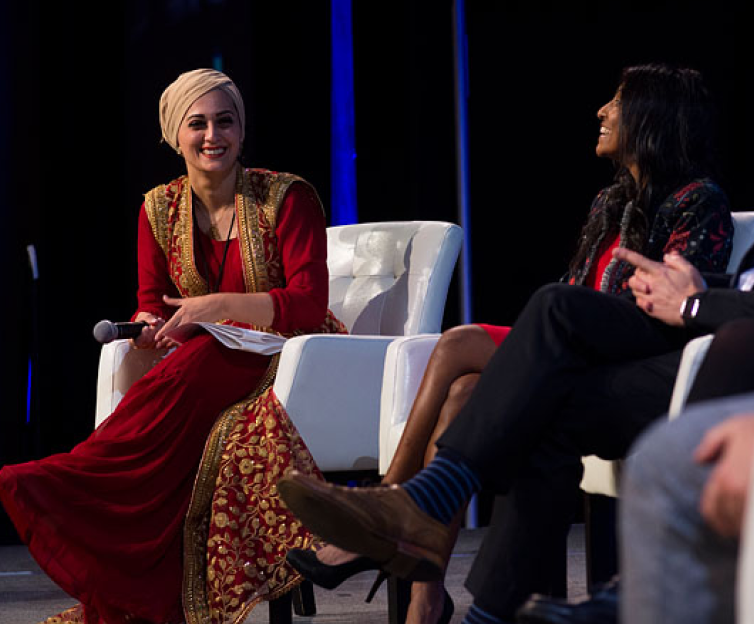
Wilmot Collins fled Liberia for survival, intent on outrunning a chaotic conflict marked by brutal war crimes and a shocking death toll. He was starving when he and his then-fiancée Maddie had a terrifying run-in with a soldier who threatened his life. That encounter compelled the couple to flee. They boarded a ship to Ghana, becoming asylum seekers.
After marrying in Ghana, Wilmot and Maddie set their sights on America. Maddie had spent a year of high school in Montana as an exchange student, so she suggested they go there. “Either we go to Montana or we go to America,” Wilmot said. “But Montana is in America,” Maddie explained.
“When I was a refugee, it was Helena, Montana, of all places, that gave me a second chance at life.”
With the support of her American host family, Maddie received a scholarship to a nursing program in Helena. Despite being newly pregnant, however, she would have to go on her own. Wilmot would stay behind to endure the United States’ strict vetting process. Nearly three years later, in 1994, a celebratory throng welcomed Wilmot at the Helena airport, where his daughter, Jaymie, toddled toward him for the first time.
Of the many roles Wilmot has taken on in America — dad, U.S. Navy Reservist, and LIRS board member among them — the one that has drawn national media attention is history-making politician. In 2017, Helena, a city that had a four-term incumbent mayor and an African-American population below one percent, elected Wilmot the first Black mayor in Montana since before statehood. Re-elected in 2021, Mayor Collins is continuing to ensure that the city he leads not only serves all its citizens but also beams like “a beacon of hope” to refugees.
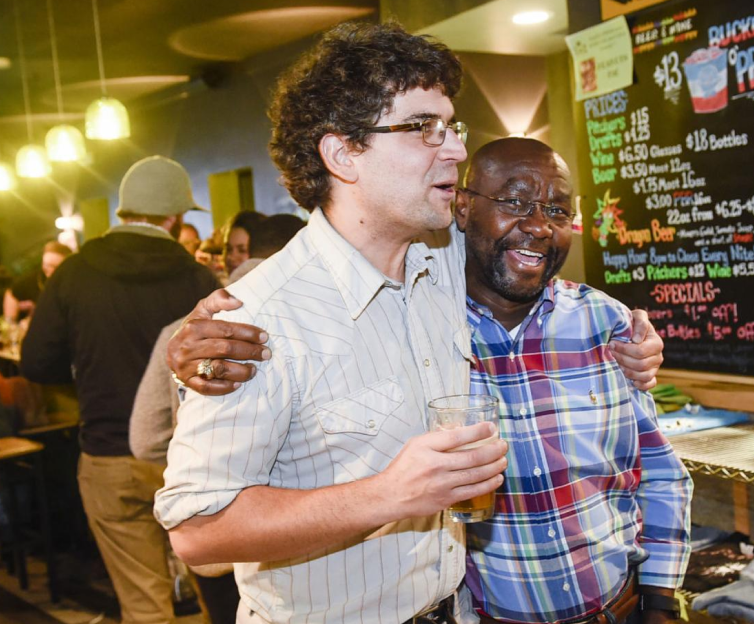
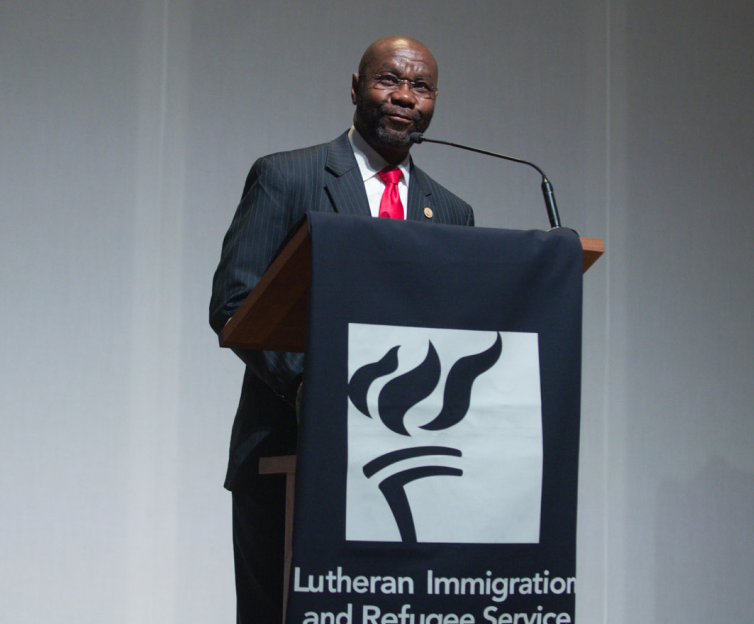
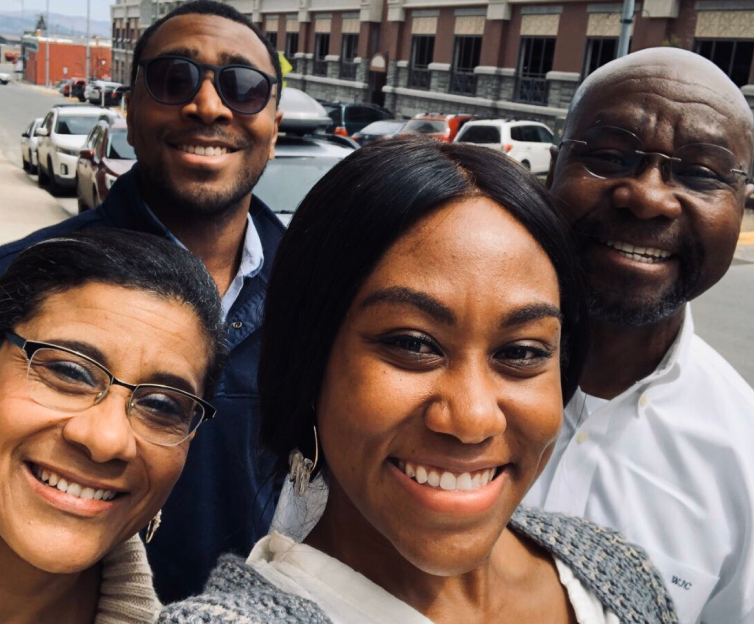
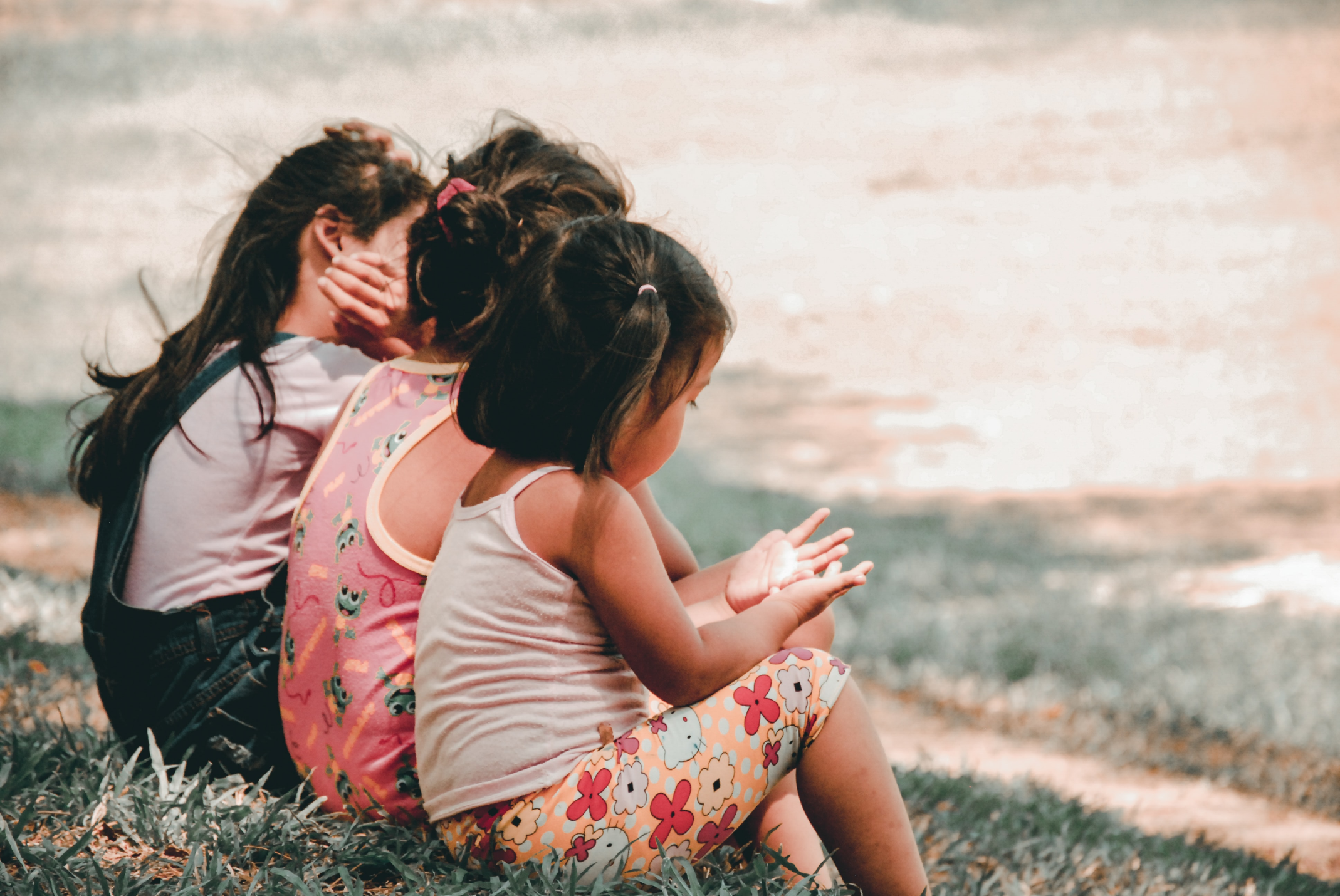
Dream A Reality.
Children are the most vulnerable newcomers. Through programs that emphasize safety and trauma-centered care, LIRS ensures children’s safe release to trusted family members. We provide home environments that foster learning and growth, and we follow up with children and families in their communities. Our depth of experience and expertise have made us a trusted partner of the U.S. government, and we are honored to play a leading role in uniting unaccompanied immigrant children with their families.
and tell them why you believe in LIRS.